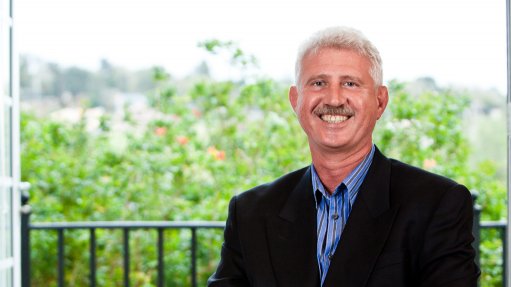
CHRIS JACOBSOIM conflict resolution expert
An urgent collective response from all stakeholders is needed to deal with investor confidence that has been negatively affected by labour tensions, particularly in the mining sector.
Business improvement consultancy OIM conflict resolution expert Chris Jacobs says that, over the past few years, unprotected strikes have become uncontrolled, violent and unlawful. This has seriously hampered the image of South Africa as a potential investment opportunity.
“These strikes were driven by a mob mentality owing to the rejection of recog-nised unions and recognised leaders. There is no doubt that the labour relations land-scape in South Africa needs to change to an environment of normality, stability and order.
“The key issue underlying increased strikes is that what is happening in society is being transferred into the workplace. There has generally been a major increase in service delivery protests and associated protests. This upheavel serves as a barometer of the general frustrations of the people in the country and specifically in the mining industry.
“What we have witnessed during these labour protests is that, very often, people are economically and socially dissatisfied, and this leads to disruption at the work-place and, ultimately, as we have seen, increased and unprotected strikes,” says Jacobs.
He also notes that “the writing has always been on the wall” since the 2006 security strike in South Africa. There were strong indicators that an increase in strikes and unlawful action would manifest as violent actions, which culminated in the Marikana incident that took place in the Marikana area, close to Rustenburg, in 2012.
“Sadly, not much was done by the leader-ship soon enough to steer the situation in the right direction. There has been a lack of clear leadership from government [and] organised labour . . . as well as the management of the different companies.
“We need a type of economic Convention for a Democratic South Africa (Codesa) that will bring together government, organised business, organised labour and civil society that can jointly thrash out action plans for economic and socioeconomic development in South Africa.” (Codesa was a forum set up in 1991 to negotiate South Africa’s political transition.) “This will show real leadership but also send out the right signals to boost investor confidence.”
The manifestations of increased and unprotected strikes as well as illegal and violent actions can be effectively dealt with only if the country addresses the economic and socioeconomic situation, says Jacobs.
Employers should build better working relationships with all their employees to deal with the labour situation more effectively, he adds. It is the responsibility of management to create and maintain the right climate for effective employee relations. This can only be done through honest engagement and communication with all employees, and not just a select group of people.